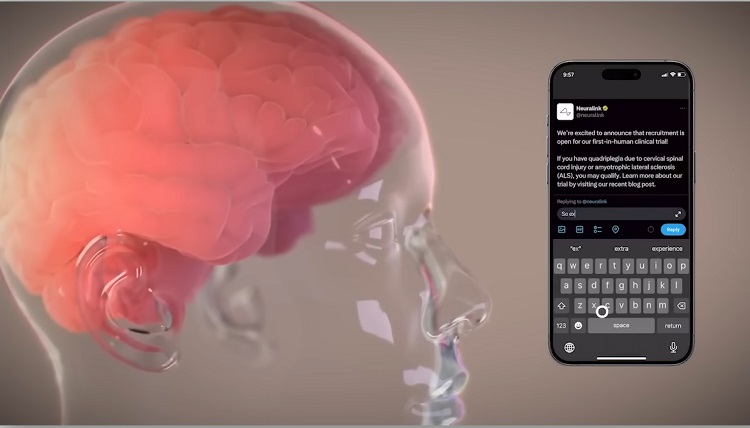At a Spaces event on the social media platform X, Elon Musk, Neuralink’s founder, announced that the first human recipient of the Neuralink brain-chip implant has fully recovered and can control a computer mouse using only cognitive functions.
Elon Musk stated in a Spaces event on the social media platform X that the progress of the patient is positive, indicating a complete recovery without any known adverse effects.
Musk further mentioned that the patient can manipulate a computer mouse solely through thought processes.
Last month, Musk announced that the company had performed its inaugural implantation surgery on a human participant, subsequent to obtaining authorization the previous year to investigate the safety and efficacy of its chip implant and surgical equipment in human subjects.
Musk: Neuralink Aims to Enhance Patient’s Mouse Clicks

Musk stated that Neuralink is currently focused on maximizing the number of mouse button clicks achieved by the patient.
However, Neuralink did not respond immediately to a request for further information.
The company successfully implanted a chip in its first human patient last month, following approval for human trial recruitment in September.
According to Neuralink, the study utilizes a robotic system to precisely position a brain-computer interface implant in a brain region responsible for controlling movement intentions.
The primary objective initially was to empower individuals to control a computer cursor or keyboard through mental commands.
Musk has ambitious plans for Neuralink, envisioning expedited surgical implantations of its chip devices to address conditions such as obesity, autism, depression, and schizophrenia.
Ultimately, Neuralink aims to employ implants for the purpose of establishing connections between human brains and computers, with the intention of aiding individuals such as those with paralysis to operate smartphones or computers, or enabling blind individuals to restore their vision.
Analogous to existing brain-machine interfaces, the company’s implant would capture and interpret electrical signals emitted by the brain as actionable commands.
Last month, Musk revealed that the company’s inaugural product would be named Telepathy, specifying that its initial users would be individuals who have lost mobility in their limbs.
